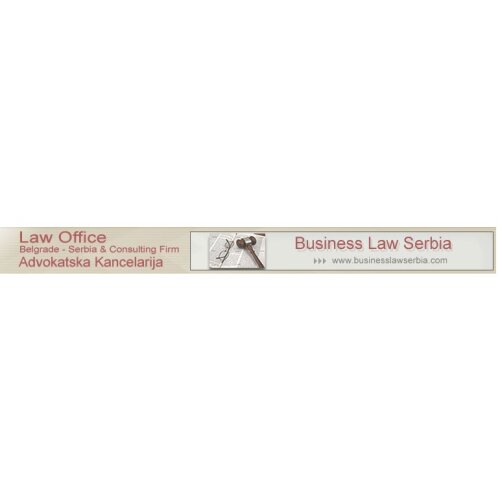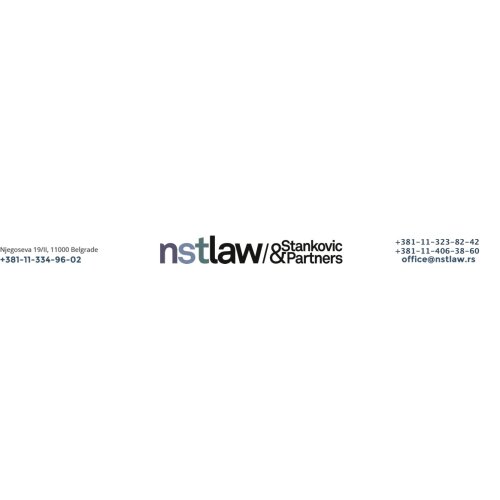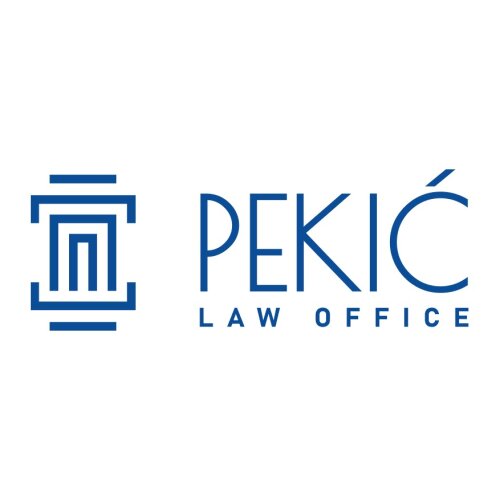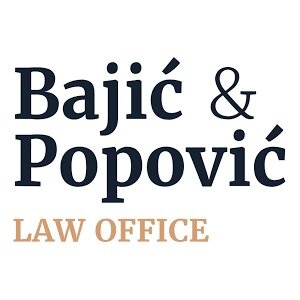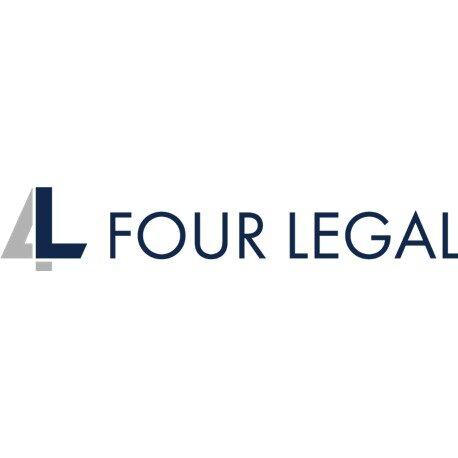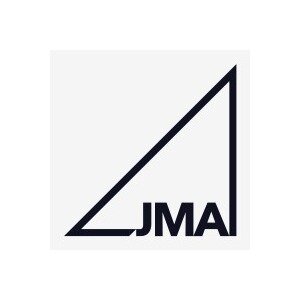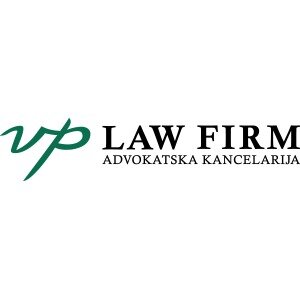Best Mining Law Lawyers in Serbia
Share your needs with us, get contacted by law firms.
Free. Takes 2 min.
Or refine your search by selecting a city:
List of the best lawyers in Serbia
Legal guides written by Business Law office - Advokatska Kancelarija:
- Why Invest In Serbia
About Mining Law in Serbia
Mining Law in Serbia refers to the legal framework that governs the exploration, extraction, processing, and transport of mineral resources within the country. The Republic of Serbia possesses rich reserves of minerals such as coal, copper, gold, lead, zinc, lithium, and construction materials. The primary piece of legislation in this sector is the Law on Mining and Geological Exploration, which outlines the rights and obligations of both private and state actors, ensures environmental protection in mining operations, and establishes procedures for obtaining permits and concessions. Mining Law also interacts with related branches such as environmental law, land use law, and corporate law.
Why You May Need a Lawyer
Mining projects are highly regulated, involve significant investment, and can have major environmental and social impacts. As a result, individuals and companies frequently require legal assistance during various stages, including:
- Applying for exploration or exploitation permits
- Negotiating mining rights or concessions
- Handling regulatory compliance with environmental, safety, and health standards
- Resolving disputes over land use or compensation to local communities
- Structuring joint ventures, acquisitions, or foreign investment arrangements
- Understanding and interpreting interpretations of evolving legal norms
- Dealing with state authorities or administrative bodies
- Ensuring compliance with closure and post-mining obligations
Given the complexity and high stakes involved, consulting a lawyer with expertise in Mining Law can help protect your interests, avoid costly mistakes, and ensure that operations proceed legally and smoothly.
Local Laws Overview
The main legal act governing mining activities in Serbia is the Law on Mining and Geological Exploration. Some of the key aspects include:
- Permits and Licenses - Mining and geological exploration activities require government-issued permits, including exploration permits and exploitation (mining) licenses.
- Concessions - Concession agreements are required for the commercial exploitation of mineral resources. These agreements are generally granted via tender or direct negotiation, for a limited period of time.
- Environmental Protection - Operators must comply with environmental laws as well as perform environmental impact assessments before beginning activities.
- Land Rights - Mining operators must secure the right to use the land, either through ownership, lease, or easement agreements with landowners.
- Health and Safety Standards - Stringent regulations exist to protect workers and the public in mining areas.
- Fees and Royalties - Operators are obligated to pay fees and royalties to the state for the use of mineral resources.
- Closure and Reclamation - There are legal obligations for operators to rehabilitate and reclaim mining sites after exploitation ends.
Understanding these local laws and their interplay with other regulations is crucial for any person or entity engaging in mining activities in Serbia.
Frequently Asked Questions
What licenses or permits are required to begin mining in Serbia?
You need an exploration permit to begin geological investigations. Once commercial reserves are verified, you must obtain an exploitation license. Both are issued by the Ministry of Mining and Energy or local authorities, depending on the location and type of resource.
How long does the permitting process take?
The timeframe can vary widely. Simple exploration permits may be processed within a few months, while complex exploitation licenses, especially those involving public participation and environmental impact assessments, can take over a year.
Can foreign entities hold mining rights in Serbia?
Yes, foreign individuals and companies can obtain mining rights or participate in mining projects, subject to the same requirements and procedures as domestic entities.
What are the main fees and royalties in Serbian mining?
Fees are paid for the issuance of permits. Royalties are calculated as a percentage of the market value or quantity of extracted minerals and are payable to the state budget.
How does the state regulate environmental protection in mining?
Before starting activities, an operator must conduct an environmental impact assessment and obtain approval from relevant authorities. Regular monitoring and compliance with environmental standards are mandatory throughout the life of the mining project.
What are the main risks for mining investors in Serbia?
Risks include potential changes in regulatory requirements, delays in permit issuance, disputes over land rights, environmental compliance costs, and fluctuations in global commodity prices.
Can individuals claim compensation for damages caused by mining activities?
Yes, individuals or organizations affected by mining operations can claim compensation for proven damages to property, health, or the environment, either through negotiations or court proceedings.
Are there legal obligations regarding closure and reclamation of mining sites?
Yes, operators must submit and implement a closure and reclamation plan, which must restore the land to an acceptable condition and ensure long-term environmental protection.
Is it possible to transfer or sell mining rights in Serbia?
Mining rights may be transferred to other entities with the approval of the Ministry or competent authority, subject to fulfillment of legal and contractual obligations.
Who monitors compliance with mining laws in Serbia?
The Ministry of Mining and Energy and its local branches are responsible for overseeing compliance, issuing permits, and enforcing sanctions, in cooperation with the environmental and labor authorities.
Additional Resources
For more information, guidance, or assistance, the following resources can be helpful:
- Ministry of Mining and Energy of the Republic of Serbia - Administrative authority for mining permits and regulation
- Geological Survey of Serbia - Resource for geological data and surveys
- Republic Geodetic Authority - For land titles, cadastral information, and land-use rights
- Chamber of Commerce and Industry of Serbia - Provides support and information for businesses in the sector
- Official Gazette of the Republic of Serbia - Source for official laws and regulations updates
- Serbian Environmental Protection Agency - For guidelines and standards on environmental compliance
Next Steps
If you need legal assistance regarding Mining Law in Serbia, consider the following steps:
- Identify the specific stage or issue in your mining project where legal support is needed
- Gather all relevant documentation, such as property titles, business documents, existing permits, and project plans
- Contact a lawyer or law firm specializing in Mining Law and related areas, such as environmental or real estate law
- Schedule a consultation to discuss the details of your matter and receive tailored legal advice
- Follow your lawyer’s recommendations regarding compliance, negotiations, submissions, or dispute resolution
Early and proactive legal involvement can help achieve your mining project goals while staying compliant with Serbian regulations and avoiding costly disputes or delays.
Lawzana helps you find the best lawyers and law firms in Serbia through a curated and pre-screened list of qualified legal professionals. Our platform offers rankings and detailed profiles of attorneys and law firms, allowing you to compare based on practice areas, including Mining Law, experience, and client feedback.
Each profile includes a description of the firm's areas of practice, client reviews, team members and partners, year of establishment, spoken languages, office locations, contact information, social media presence, and any published articles or resources. Most firms on our platform speak English and are experienced in both local and international legal matters.
Get a quote from top-rated law firms in Serbia — quickly, securely, and without unnecessary hassle.
Disclaimer:
The information provided on this page is for general informational purposes only and does not constitute legal advice. While we strive to ensure the accuracy and relevance of the content, legal information may change over time, and interpretations of the law can vary. You should always consult with a qualified legal professional for advice specific to your situation.
We disclaim all liability for actions taken or not taken based on the content of this page. If you believe any information is incorrect or outdated, please contact us, and we will review and update it where appropriate.
Browse mining law law firms by city in Serbia
Refine your search by selecting a city.




